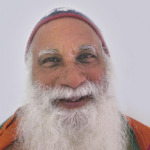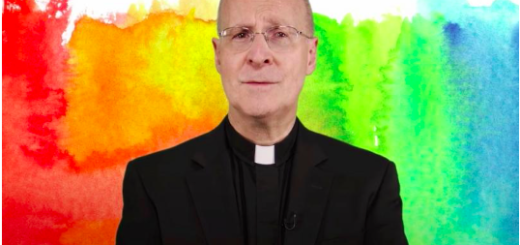 We have only one life that we know about for sure, and that life is lived in this world. If that life is lived well, the after-life will be well taken care of. According to Joseph Campbell, the well-known researcher and writer of myths, all major religions have some sort of creation story. These stories are similar in origin. They all have basic principles or values essentially similar to the ten commandments of Judeo-Christian religions. Lest persons wonder where I come from, I believe in moral and ethical laws and rules made in societies to govern their members, and to regulate their behaviors and transactions. There is no sphere where regulations do not affect. I also believe there comes a time when all humans who are capable of (at least have average intelligence), should be able to be guided by their own inner light. In other words, they should be able to go beyond dogmas and doctrines, and “god-persons” and personalities who claim to have special prerogatives to represent God or God’s will.
We have only one life that we know about for sure, and that life is lived in this world. If that life is lived well, the after-life will be well taken care of. According to Joseph Campbell, the well-known researcher and writer of myths, all major religions have some sort of creation story. These stories are similar in origin. They all have basic principles or values essentially similar to the ten commandments of Judeo-Christian religions. Lest persons wonder where I come from, I believe in moral and ethical laws and rules made in societies to govern their members, and to regulate their behaviors and transactions. There is no sphere where regulations do not affect. I also believe there comes a time when all humans who are capable of (at least have average intelligence), should be able to be guided by their own inner light. In other words, they should be able to go beyond dogmas and doctrines, and “god-persons” and personalities who claim to have special prerogatives to represent God or God’s will.
I am aware that we are in a dangerous territory here. Most humans have not come of age. They are immature or dependent in that they look outside of themselves for some guidance or assistance to direct their lives. I am not including here forms of peer consultation that can help in problem-solving, and can certainly enhance one’s life. The modern life engenders dependence on so many specialists. If we dare to go against them, we would be labeled stubborn or non-conforming or even outright rebellious. Many professions are based on what is called medical model that advocates a doctor-patient relationship. The general mode is consultee-consultant or helpee-helper relationship. In a highly technological and consumer world, one is at a loss without some technical assistance. In a technological, scientific world, there are no dogmas or doctrines but specialized knowledge. When I am talking of dogmas and doctrines, I have especially in mind religions and political parties. In religions, for instance, one’s life is guided by a belief system, rites, rituals, and practices (superstitious or otherwise) and is chiefly guided by fear due to what is going to happen in after-life. Fear, perhaps more than love, is the greatest human motivator. Christ in his time challenged many of the sacrosanct religious laws and practices for which he was most cruelly put to death. Socrates before him underwent death for going against societal conventions of his time. Gandhi not too long ago was assassinated by fanatics of his own religion as they thought he was not favoring his religion enough. History is replete with examples of great men and women who are revered now but had to pay the ultimate price for what they stood for in their own life-time.
Dogmas and doctrines evolved in peculiar situations of the past. One is expected to conform and follow them unquestioningly. To do otherwise would be highly imprudent and terribly inconvenient. But religions have a messy history wherein they fought important human discoveries or were too slow in acknowledging and advocating human rights. It is also important to note that they often had the support of immoral but powerful rulers if they themselves did not have the required power to get persons to conform to their dictates. Focusing unduly on an after-life drawn from faith, they often neglected the only sure life that is in this world. Now they are busy canonizing some of their members for heroic virtues in this life or even some members who protected their status quo as they in their misguided zeal even violated others’ rights or at least condoned the violation of these rights. As these dogmas and doctrines eat into the fabric of the glorious freedom of God’s children, it is wise to examine each one of them thoroughly before accepting them.
It is undoubtedly of paramount importance to guide one’s life by one’s inner light, and to fully appropriate one’s God-given freedom. When would one be ready to take this all-important responsibility? As this is uncharted waters, a great deal of dialogue, discussion, and debate is certainly called for. My own thinking is that an individual who has taken the trouble to acquaint himself or herself with the various wisdom streams of religions and great moral philosophers of integrity, and who has thoroughly trained in and live a moral and ethical value system, that benefits the entire humanity, could be ready for it. This person, about 25 to 30 years of age (it takes at least that long to reach the desired level of training and maturity), after rigorous character and conscious formation may be entitled to the task. This person, guided by an on-going discernment of God’s will and common good of humanity, lives by the law of love in a state of complete surrender.

 We have only one life that we know about for sure, and that life is lived in this world. If that life is lived well, the after-life will be well taken care of. According to Joseph Campbell, the well-known researcher and writer of myths, all major religions have some sort of creation story. These stories are similar in origin. They all have basic principles or values essentially similar to the ten commandments of Judeo-Christian religions. Lest persons wonder where I come from, I believe in moral and ethical laws and rules made in societies to govern their members, and to regulate their behaviors and transactions. There is no sphere where regulations do not affect. I also believe there comes a time when all humans who are capable of (at least have average intelligence), should be able to be guided by their own inner light. In other words, they should be able to go beyond dogmas and doctrines, and “god-persons” and personalities who claim to have special prerogatives to represent God or God’s will.
We have only one life that we know about for sure, and that life is lived in this world. If that life is lived well, the after-life will be well taken care of. According to Joseph Campbell, the well-known researcher and writer of myths, all major religions have some sort of creation story. These stories are similar in origin. They all have basic principles or values essentially similar to the ten commandments of Judeo-Christian religions. Lest persons wonder where I come from, I believe in moral and ethical laws and rules made in societies to govern their members, and to regulate their behaviors and transactions. There is no sphere where regulations do not affect. I also believe there comes a time when all humans who are capable of (at least have average intelligence), should be able to be guided by their own inner light. In other words, they should be able to go beyond dogmas and doctrines, and “god-persons” and personalities who claim to have special prerogatives to represent God or God’s will.
















